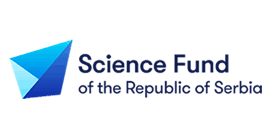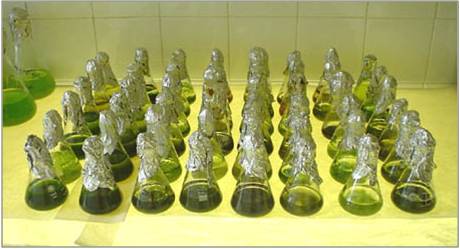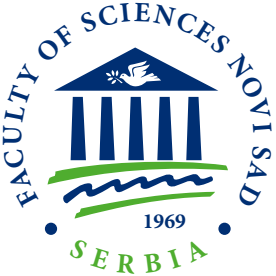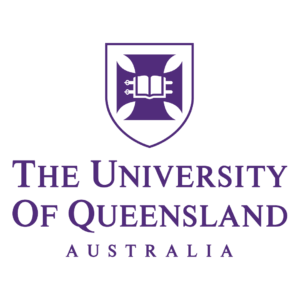
Project title: Molecular methOds for suppoRting microAlgae as Biofactories Acronym: MORAB
 Funded by the Science Fund of the Republic of Serbia
Funded by the Science Fund of the Republic of Serbia
Program of cooperation of Serbian science with the Diaspora: Vouchers for knowledge exchange
Research field of the Project: Biotechnical sciences
Project implementation period: 2021-2023
Name of the Scientific Research Organization (SRO) from Serbia: University of Novi Sad Faculty of Sciences, Department of Biology and Ecology
Name of the Project coordinator from Serbia: Prof. Dr Jelica Simeunović
Address, City: Trg Dositeja Obradovića 3, 21000 Novi Sad, Serbia
Name of the Host Institution (HI): School of Biological Sciences, The University of Queensland Address, City, Country: St Lucia, QLD 4072, Brisbane, Australia
Name of the Project Partner – expert from Diaspora: Prof. Dr Miloš Tanurdžić




Microalgae represent diverse group of photosynthetic prokaryote (such as cyanobacteria) and eukaryote microorganisms which contribute through photosynthesis up to 30% of Earth’s oxygen. As primary producers they are extremely important for all higher life. The immense diversity within this group of microorganisms, apart the variability of morphology and habitats, is also reflected in the extent of their natural production. To survive in a competitive environment, microalgae have developed defense strategies that result in a significant level of structural–chemical diversity, from different metabolic pathways. They are able to produce a variety of bioactive secondary metabolites with biotechnological importance. Many of these have pharmaceutical, nutraceutical, biomedical, agricultural, industrial application. The exploration of these organisms for pharmaceutical purposes has revealed important chemical prototypes for the discovery of new agents, stimulating the use of sophisticated techniques and new syntheses of compounds with biomedical application.
Among microalgae, cyanobacteria are extremely potent as bioproducers. The majority of their bioactive metabolites have either been polyketides, non-ribosomal peptides or hybrid of the two. Enzymes (poyketide synthetases (PKSs) and non-ribosomal peptide synthetases (NRPSs) are exclusively involved in the biosynthesis of these natural products and can be used as a mining tool for secondary metabolism. Molecular approaches coupled with bioinformatics have been used to successfully identifying gene clusters involved in the biosynthesis of a variety of secondary metabolites in cyanobacteria. Using genetic PCR-based screening technique it is possible to determine the presence and activity of NRPs and PKSs genes in different strains. In this project we will focus on those two gene groups. We plan to combined NRPS and PKS PCR based screening study in order to sequence and analyze the genes responsible for the production of bioactive secondary metabolites in selected cyanobacterial strains of Oscillatoria, Nostoc and Anabaena genera. The results will be used to assess the potential of tested strains to produce secondary metabolites as biofactories. These data will result in the development of experiments to identify and implement fermentation technologies that will induce the production of bioactive metabolites of special biotechnological interests. Research activities within the project will directly help in analyzing the biotechnological potential of the strains from microalgal culture collection of the Department of Biology and Ecology, Faculty of Sciences, which serves as a starting point for the development of different biobased solutions.
Molecular biotechnology holds great promise in identifying and utilizing biochemical pathways in microalgae to engineer and/or optimize pathways for bioproduction. This Project will therefore focus on identifying molecular methods with direct impact on understanding cyanobacterial genes responsible for biosynthesis of variety of biologically active metabolites.

Culture collection of cyanobacteria and microalgae (NSCCC) with more than 100 strains has been established at Department of Biology and Ecology in the 1980s. In order to study potential of the collection strains as biofactories (producers of biotechnologically important compounds) it is crucial to introduce new molecular genetics and genomics methods into their further research. Our partner from dijaspora, Dr Miloš Tanurdžić, is world-recognized expert in the field of plant genomics and genetics, well positioned to offer new knowledge related to molecular genetics and genomics methods for advanced biotechnology of microalgae, which will support one of our research directions in our department.
In line with the principles of green technology, one of our’ strategic directions of research involves the development of integrated microalgae biofactory concepts for the sustainable processing of biomass into a variety of bioproducts in which genomic information and functional genomics data play a significant role. In that regard, NSCCC established at DBE as an important basis for biotechnological applications requires introduction of different molecular genetics and genomics methods that would enable engineering of microalgal secondary metabolism.
The general objective of the project is to gain new knowledge related to molecular biology and genomics methods for advanced research of microalgae as biofactory (producers of biotechnological important compounds). To achieve that, the following specific objectives are set:
- To link the respective research areas of the project partners. This will be done through literature review and intensive communication between the project partners during the first six months of the project.
- To identify, learn and implement new research methods at PMFDBE This will be done by 1) DNK library preparation and selecting genes of interest and the most suitable screening methods for identifying presence and activity of those genes involved in the biosynthesis of secondary metabolites in microalgae (cyanobacteria) 2) on-line training in functional genomics computational analyses before the study visit 3) experimental work and hands-on training during the one month long study visit 4) implementation of new methods in screening of strains from NSCCC in order to select the most potent 5) transfer of gained knowledge to junior colleagues at PMFDBE.
- To promote and disseminate project results Project will be promoted on PMFDBE institutional website and social networks. Gained knowledge will be transferred to at least 10 junior colleagues from the University of Novi Sad (Faculty of Natural Sciences, Faculty of Technology and FINS) directly involved in the research on microalgae, through workshop which will be organized at PMFDBE after the study visit. Dissemination of the project results through scientific conferences and publications will be done in the post-project period due to short length of the project.
- To ensure smooth coordination of planned research activities. As this project involves only three persons, smooth coordination of proposed research activities will be achieved through intensive direct communication using email and online meetings.
MORAB will improve collaboration with the research organization from Australia, which will help in implementation of new molecular techniques and introduction of genetics knowledge in microalgae research at DBE and the University of Novi Sad. This cooperation will support new approach, necessary to develop innovative, efficient and sustainable integrated microalgae value chains for the production of biotechnologically important compounds supporting sustainable economic growth across a wide range of sectors in pharmacy, biomedicine, agriculture, food industry and environmental protection.



